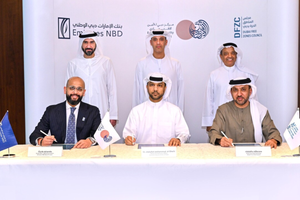In recent times, the fight to gender parity has been slowly dissipating with more offices and workplaces adopting a gender balanced workforce. A strong leader's qualities are not related to gender, as these qualities are not of a single gender.
Men and women are no different, other than anatomically. Neither is better than the other and what matters is the thought, attitude and experiences. A balanced workforce shows a good and critical corporate strategy that brings in profits in the long-term and creates a high corporate value of the firm.
According to the International Labour Organization, only 43% of the world’s working-age women were employed in 2021, compared to 69% of working-age men. The World Bank estimates that on average, women have just three-quarters of the legal rights afforded to men. 95 countries do not guarantee equal pay for equal work.
COVID-19 has exacerbated many of these inequalities, as of September 2021, women or girls were 2.4 times likelier than men or boys to have foregone paid work to care for others, 21% likelier to have dropped out of school.
Women engaging in paid work, can be transformative for them as individuals, for their families, and for entire societies. One estimate suggests that simply raising female labour force participation rate to equal the rate for men would boost GDP by 5 percent in the United States, 9 percent in Japan, and 34 percent in Egypt. More recent work by IMF researchers argues the gains would be even larger, since greater gender diversity is linked with higher productivity.
News Source: World Trade Organization
Companies in the MENA region have been following the trend of hiring more women in the workforce quickly, with the number of all-male boards falling through in Saudi Arabia ever since the announcement of Vision 2030.
The UAE has been achieving gender balancing in different fields of the workplace, depending on the sector - with more males in construction and contracting, while more female employees in media and communications. The pattern of a gender balanced workforce showing up in most sectors such as customer service, sales, management and IT in the country.
With more women ready to join the workforce in the region, they are at the core of the change in the region's economic and development taking place. But the real appreciation for this change in the society is all in thanks to the leaders of the country that have made it possible. Such a change has aspired from the top down and achieving complete equality for women is not too far away in the future.









